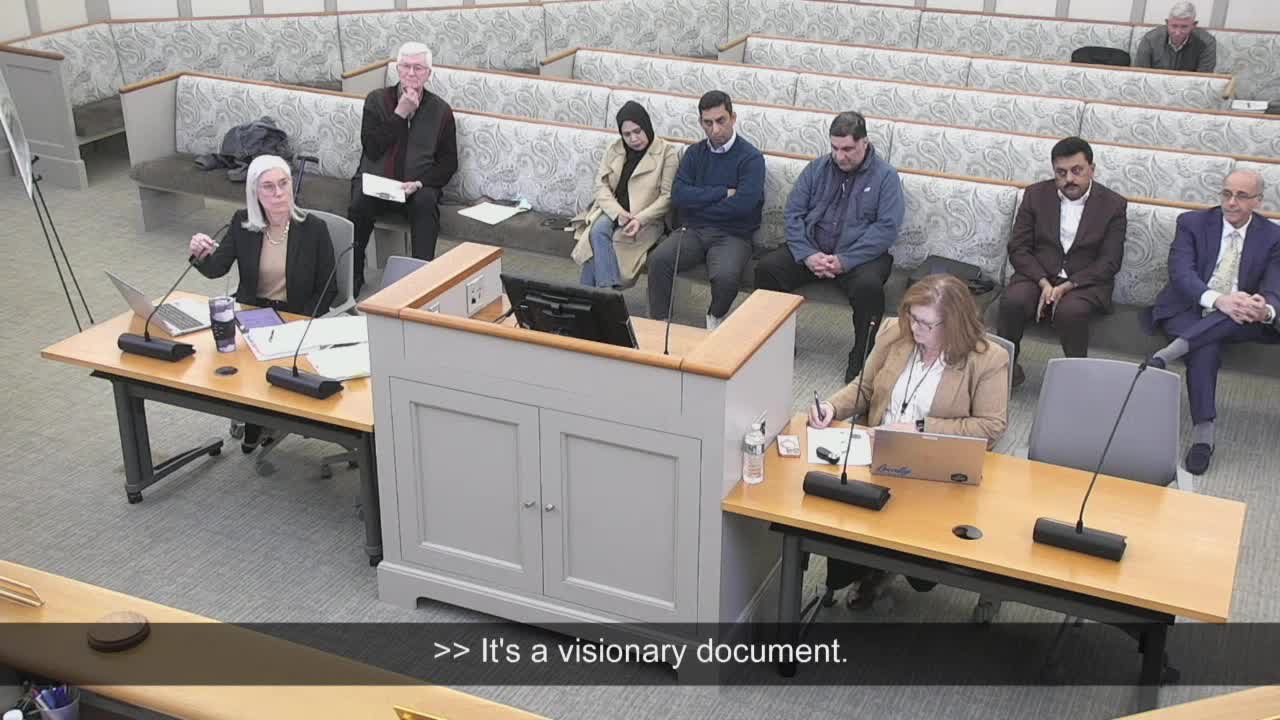Leesburg staff outlines FY2027–2032 capital improvements program, invites commission input
Get AI-powered insights, summaries, and transcripts
Subscribe
Summary
Assistant Director Doug Wagner presented the initial draft FY2027–2032 Capital Improvements Program to the Planning Commission on Nov. 6, highlighting candidate projects across general government, parks and recreation, streets and utilities and inviting commissioner priorities prior to the January recommended plan.
The Leesburg Planning Commission received an initial presentation Nov. 6 on the town’s proposed FY2027–2032 Capital Improvements Program (CIP). Doug Wagner, assistant director of capital projects and public works, described the CIP process and timetable, the spend‑plan and sustainability modeling that the town will run at several stages, and a preliminary list of candidate projects submitted by departments.
Wagner defined a capital project for the town as construction, renovation, demolition or acquisition of assets valued at more than $60,000 with a useful life of at least five years. He said the CIP implements Legacy Leesburg plan objectives and the town’s transportation improvement plan, and that staff will conduct additional budget and project sustainability meetings through December and bring a more detailed recommended plan to the commission in January ahead of council hearings.
Staff noted new projects proposed for general government, parks & recreation, airport, streets and storm drainage, and utilities. Examples flagged for the commission included wayfinding sign replacement, athletic‑field and outdoor‑tennis lighting conversion to LED, parking lot island renovation at Idle, a parks‑maintenance facility, Monroe Street and Madison Court improvements, Tavistock Pond rehabilitation, and airport projects such as replacement hangars, runway visual approach (PAPI) upgrades and a west‑side access road. Utilities projects under review include reclaimed‑water mains, cathodic protection upgrades, sedimentation‑basin refurbishment, sanitary‑pump station work and chemical‑tank replacements at water treatment facilities.
Commissioners and staff discussed several topics and possible additions to the CIP: converting existing street lights to LEDs (new installations are LED; older fixtures are upgraded at maintenance or replacement), options to reduce snowplow damage to curbs (staff to research available fleet practices and equipment), opportunities to beautify and restore vegetation along Route 15/Battlefield interchange as design and easements allow, and requests for benches and trash receptacles in core downtown pedestrian corridors (North/South King and Market/Catoctin). Commissioners also asked staff to explore adding a targeted transportation study (Market, Loudoun, King and Plaza) to assess current capacity and how much additional development the corridors can absorb before level‑of‑service degrades.
Wagner emphasized the CIP is at an early stage; projects can be added or removed as departments and the town manager refine budgets. He invited commissioners to flag priorities for council consideration and said staff will present a more detailed plan and public‑hearing schedule in January.
Commissioners left the discussion with several follow‑up requests for staff: investigate curb/sidewalk damage mitigation for snow removal; provide status on Dominion and Washington Gas plans for undergrounding and gas extension in targeted neighborhoods; and consider including targeted transportation, streetscape and utility studies in the CIP process where they would enable better long‑term planning.
